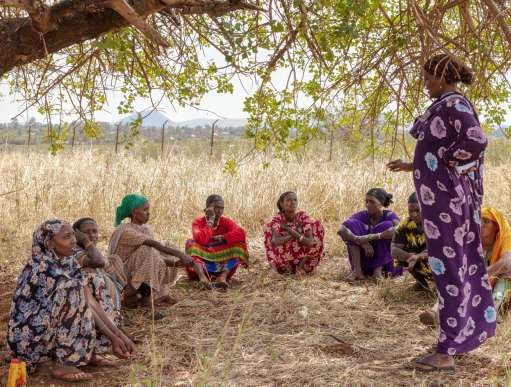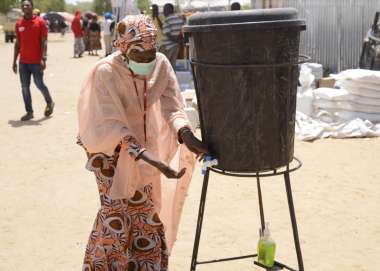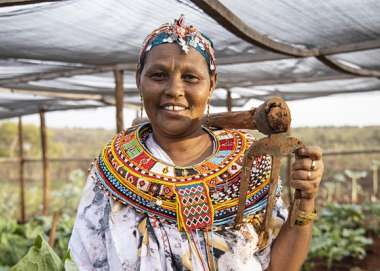The majority of African countries spent more repaying external debts than on healthcare or education – and in some cases both – last year as the continent experiences its worst debt crisis in a generation, according to a new report by Christian Aid.
The research reveals that civil-war hit South Sudan - where millions are facing acute hunger - spends more than ten times more on external debt servicing than healthcare. Meanwhile in Malawi, where just 15% of children complete secondary school, twice as much is spent on debt than education.
Image credits and information

The scale of this inequality between Africans and the rest of the world is so great that I am not sure the world will ever forgive us for failing to deliver urgent debt restructuring.
Health and education
Researchers calculated that African governments spent over 50 times more on external debt payments than the entire UK aid budget to the continent in 2023 with 32 spending more on debt than healthcare and 25 spending more on debt than education. As a consequence, millions of children are missing out on school and pregnant women are unable to give birth in a hospital, or even with the help of a midwife.
Total external debt service by all African countries (USD)
-
$85b
2023
-
$104b
2024
Total external debt service by all African countries to private creditors (USD)
-
$39b
2023
-
$47b
2024
Public opinion
A new poll conducted by Savanta for Christian Aid reveals the majority (62%) of Britons believe it is wrong that more than half of African countries spend more money on external debt than on health, education or combatting the climate crisis.
A similar number (57%) think it 'absurd' that African counties spent more than 50 times more on external debt payments than the entire UK aid budget for Africa in 2023.
Last month Gordon Brown, along with 65 prominent global leaders and public figures, called on the New York State Legislature to pass the Sovereign Debt Stability Act. The New York Act is similar to legislation proposed by Christian Aid in the UK. Both build on a 2010 UK Act of Parliament which ensured private lenders took part in a previous international debt relief scheme. New York, alongside the UK, is the other key jurisdiction for government debt.
Debt cannot be repaid, first because if we don’t repay, lenders will not die. That is for sure. But if we repay, we are going to die
Image credits and information

How did we get here?
The current debt crisis is rooted in the 2008 financial crisis which led to a period of lower growth and stagnating poverty levels. These were compounded by subsequent shocks including Covid-19, the ongoing climate crisis and the Russia-Ukraine war, which has led to soaring food prices and rapidly increasing interest rates.
African government external debt payments will be at least 18.5% of budget revenues in 2024, the highest since 1998, researchers said. This is almost four times as much as in 2010, and the highest of any region in the world.
The impact
How much each country could invest in health and education if they did not have to pay external debts (USD)
-
Kenya$3.7b
USD
-
Ethiopia$3b
USD
-
Nigeria$5b
USD
-
Zambia$2b
USD
-
Malawi$791m
USD
How can we fix it?
As approximately 90% of the debt owed to private creditors by lower income countries is governed by English law, Christian Aid is calling on the Government to introduce legislation to:
- Ensure private lenders play their part in cancelling debt when lower income countries are in crisis; something that nearly half (48%) of Briton’s agree with.
- Tackle predatory private creditors who lend recklessly and charge the highest interest rates. At 6.2%, they are almost double that of Chinese lenders (3.2%), and far higher than multilateral (1%) and bilateral (1.3%) lenders.
This would help create a fairer system, prevent future crises and improve the lives of millions.






